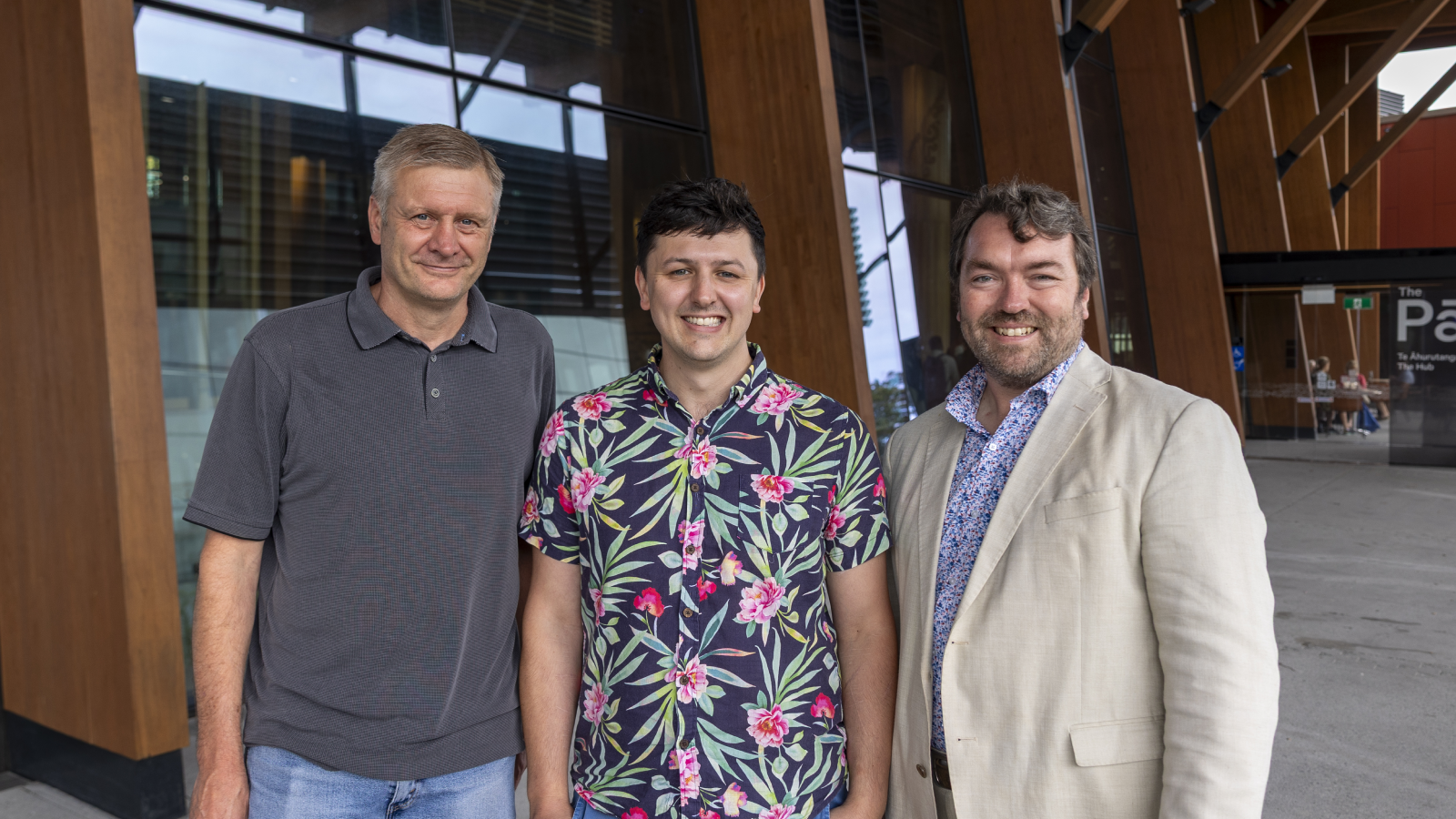University of Waikato alumni Chelsea Blackstock and Chris Wakefield’s paths had many opportunities to cross – they both studied the same subject and ended up working in the same field. However, it wasn’t until a pot of honey was involved that they were brought together.

Waikato alumni Chelsea Blackstock and Chris Wakefield have established a prize to support third-year science students.
While they grew up experiencing different lifestyles, Chelsea lived on a dairy farm and Chris grew up near the beaches of Tauranga, they share many similarities. They are family-focused, interested in science, passionate about helping others and they both chose to attend the University of Waikato to stay close to their families.
In 2016, Chris graduated with a Bachelor of Science (Technology), the same degree Chelsea graduated with one year later. Chris took an internship in Montreal, Canada, the same internship Chelsea took over once Chris left. Even with the crossover, Chelsea and Chris never bumped into each other in class, on campus or even in Canada.
Their lives finally converged when Chelsea began working at Hamilton-based Analytica Laboratories where Chris was working as a Honey Chemistry Team Leader. Chelsea was employed as a Polymerase Chain Reaction (PCR) Technician in Genomics and Chris was tasked with teaching Chelsea how to weigh honey.
As they compared notes on the previous few years, the pair realised all roads led to their University of Waikato connection. With this in mind, and being only 26 and 28 respectively, Chelsea and Chris decided they wanted to make a start giving back to their community, and sooner rather than later – beginning with supporting science students at the University of Waikato.
They established a scholarship, the Blackstock and Wakefield Prize, for a third year Bachelor of Science student to acknowledge the hard work and dedication it takes to reach that point in a degree, and to help with any financial hardship the student may be experiencing.
The regulations within this prize are closely linked to experiences Chelsea and Chris encountered while completing their degrees. In their third years, the pair felt the pressure of full-time study starting to hit.
“Chris and I both hit a snag and began wondering if this is what we really wanted to do,” says Chelsea.
They were able to push through, and they consider themselves lucky to have completed their degree without too many other challenges.
“There are so many people who are facing a lot of adversity and still manage to get through a science degree – their dedication is admirable,” says Chelsea.
They hope that their support will give students the encouragement they need to complete the final stages of their degree, because it is so worth it in the end.
Chelsea and Chris are clear in their future goal: to make the world a better place. Currently, Chris has moved out of his science role to provide support to his family’s construction business, while Chelsea is now enrolled in a Master of Science. She hopes to develop a test that will detect early infection of the bacterial infection American Foulbrood in beehives, research which could have huge implications for the honey industry in New Zealand.
Chelsea is also involved with many other philanthropic ventures. She regularly raises money for causes such as IHC, Women’s Refuge and mental health.
“The biggest misconception is that you have to be super wealthy or incredibly successful to make a difference. That’s just not true. Give back what you can because every little bit helps.”



